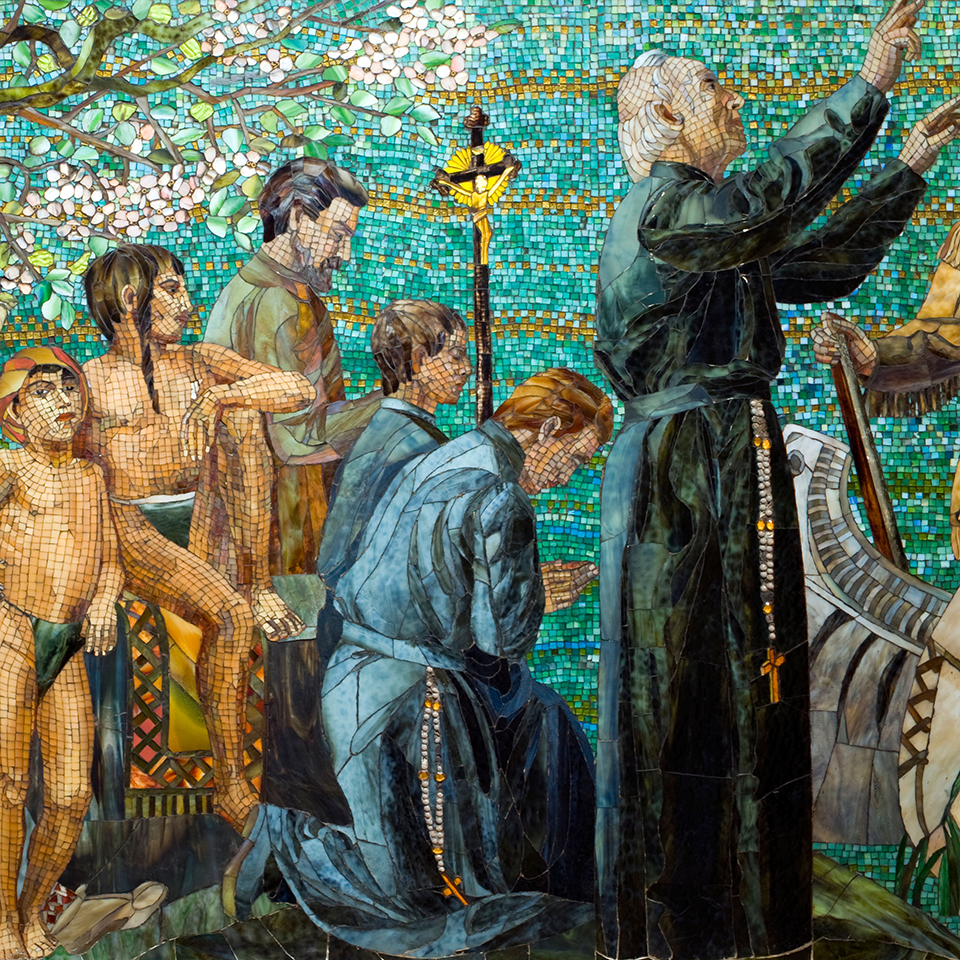“Evangelization is colonialism,” she said.
So, there I was on a Zoom call, part of a biweekly meeting of a Christian writers group. After sharing our latest accomplishments and travails, the topic of discussion turned to evangelization. One group member—I’ll call her Josephine—surprised us by categorically rejecting the very concept of missionary evangelization. She alleged that bringing the Gospel to foreign lands was tantamount to exploitation and oppression. “To send missionaries to Africa and Asia to convert the native people to Christianity is religious colonialism,” she insisted.
To support her argument, Josephine recited the familiar litany of evils perpetrated over the recent centuries by waves of Christian European colonizers: the African slave trade, the genocide of Native Americans, and other atrocities.
My first instinct was to dismiss Josephine’s viewpoint as just another example of rampant “wokeism.” But the emotion behind her argument was deep and sincere. Josephine is from a part of the world where the wounds inflicted by centuries of colonial domination are still raw. I had no desire to deny this painful history or to denigrate Josephine’s personal experiences, so I remained silent. Perhaps I should have spoken up right then and there, but I doubt it would have achieved much good. I’ve always been more articulate with my pen than with my tongue.
I considered long and hard how to respond to such a vehement (if somewhat understandable) opposition to evangelization. My first thought was, how on earth can a self-professed Christian like Josephine square such a declaration with the great commission? Christ’s final command to his disciples is unequivocal: “Go therefore and make disciples of all nations, baptizing them in the name of the Father and of the Son and of the Holy Spirit, and teaching them to obey everything that I have commanded you” (Matt. 28:19-20).
For a Christian, sharing the Gospel is nonnegotiable. St. Paul states clearly that it is a duty, an obligation: “If I proclaim the gospel, this gives me no ground for boasting, for an obligation is laid on me, and woe to me if I do not proclaim the gospel!” (1 Cor. 9:16).
Christianity is not, as Josephine and many others seem to believe, an inherently European religion. The first Christians were Jews from the Near East. When St. Paul embarked on his missionary journeys to southern Europe, was he engaged in an act of colonial aggression, imposing his Semitic beliefs on the pagans of Athens and Corinth? Or consider the episode in the Acts of the Apostles when Philip proclaimed the Gospel to the Ethiopian eunuch. Was Philip somehow oppressing this foreigner who voluntarily asked to be baptized? (Acts 8:26-40). Christianity is not an ethnic or tribal religion. It has nothing to do with blood, soil, or race. Christianity is about universal truth that transcends phenomena such as gender, race, nationality, class, or language. To quote St. Paul again: “There is no longer Jew or Greek, there is no longer slave or free, there is no longer male and female; for all of you are one in Christ Jesus” (Gal. 3:28).
When challenged, Josephine conceded that missionary evangelization might be legitimate, but only if certain conditions were met: “Christians should focus on explaining what Jesus Christ has done for them personally. But once you start saying that Christ is the way, the only way, that’s wrong.”
Notice the quintessentially modern predilection for making religion all about subjective experience, relegating faith to being little more than a private hobby. The implication is that Jesus Christ is just another moral philosopher whose teachings may or may not help you. But this idea is antithetical to Christianity. Jesus Christ is more than a mere mortal teacher like Socrates or Confucius. He is God incarnate.
Christianity is not, fundamentally, a system of ethics or even a way of life. Christianity is salvation. The Gospel is salvation. Christ is salvation. When Jesus asked the Twelve if they wished to leave him, Peter responded, “Lord, to whom can we go? You have the words of eternal life” (John 6:68).
Christians insist that Jesus is the way because this is what Jesus himself proclaimed: “I am the way, and the truth, and the life. No one comes to the Father except through me” (John 14:6).
Under the rubric of contemporary social trends, all claims to universal, objective truth must perforce be rejected as power plays that are driven by a desire to repress individual freedom. By this logic, truth must instead give way to relativism and the primacy of subjective life experiences (how often today do we hear the trite rejoinder “live your truth”?).
To paraphrase Bishop Barron, we should never impose the Gospel but always propose it. But if even proposing Christ is deemed anathema, a crime, an act of oppression and violence, we have reached an impasse. Christianity is a missionary religion. If proclaiming the Gospel to the wider world is declared out-of-bounds, Christianity collapses.
I don’t blame or judge Josephine for her views. Yet despite her sincerity, her ideas about evangelization seem narrow and a bit blinkered, particularly at a time when those initially “missioned to” have become the new missionaries. Recently, my home parish was visited by a Nigerian priest from the Missionary Society of St. Paul, the first indigenous missionary society founded by Africans. African and Asian priests now ministering in Western countries—not least in the United States—can reasonably be called Catholic missionaries, traveling far from their own lands to work amid a Church (and a society) deeply in need of both their witness to Christ and their strong, often joyful evangelization. Notwithstanding the complex historical relationship between Christian missionary activity and European colonialism, these “third world” priests (and you and I) are the new faces of evangelization. The West is now, ironically, “mission territory,” and the charge of “colonialism” (and thus oppression and coercion) simply does not compute in the twenty-first century.
